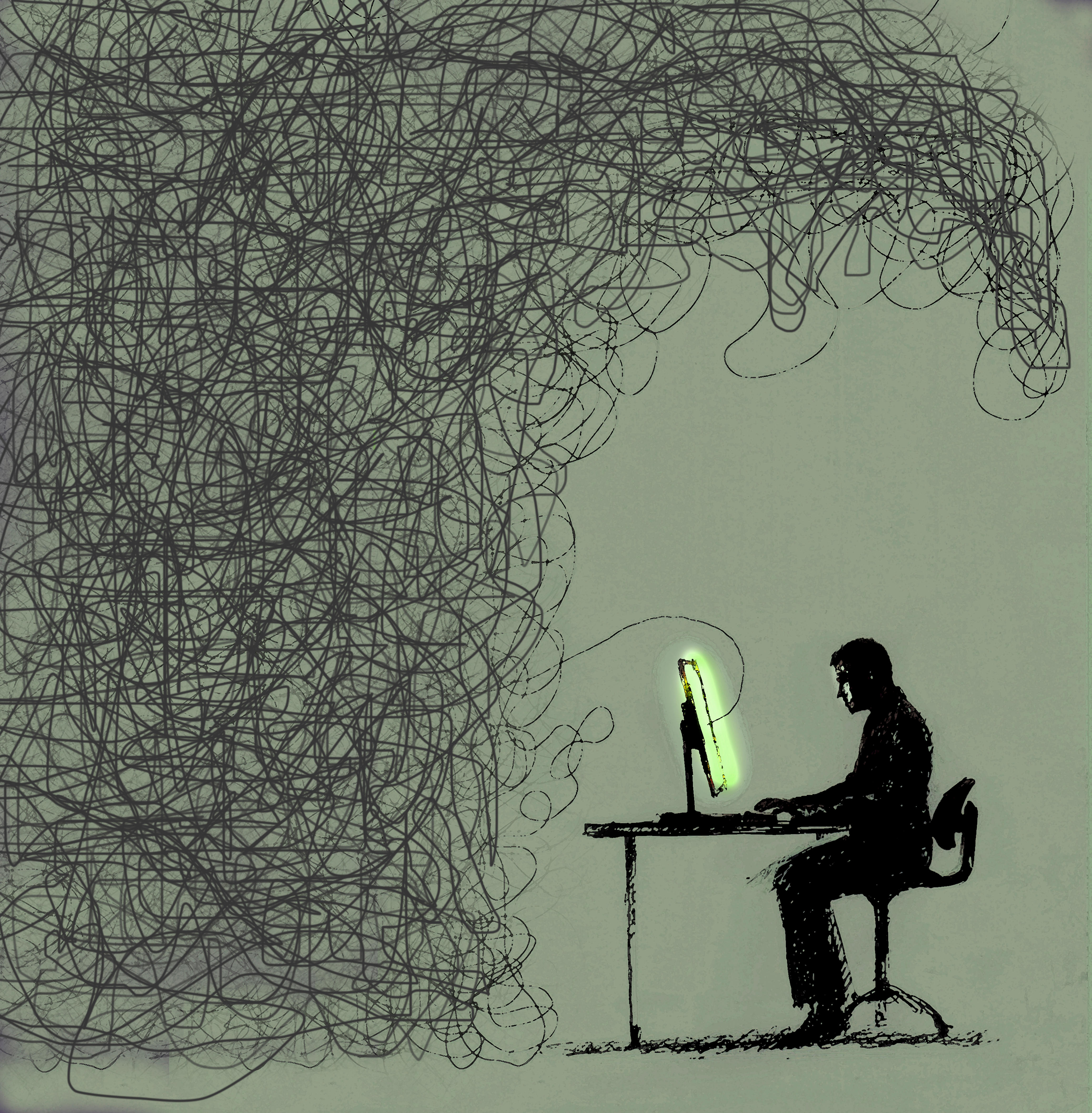The endless hassle of ObamaCare
Hey, Democrats: Stop making your programs a huge pain in the neck

Another day, another blistering problem for ObamaCare's exchange system. Last time it was a big insurer pulling out of the system, leaving some areas with no competition, this time it's an eye-watering 25 percent increase in premiums.
Liberals quickly rushed in with their usual explanations and caveats. The premiums were only going up because insurers mis-priced their initial plans, and additional subsidies will kick in for anyone facing a particularly steep hike. Only 3 percent of the population is on the exchanges, anyway — and if people would shop around, their premiums would probably go down, on average.
All more or less true, but all stepping around one major point: The ObamaCare exchanges are a tremendous pain in the neck. Next time Democrats get a bite at the policy apple, they would be wise to make further health care reform as simple and hassle-free as possible. It would be better policy and better politics.
The Week
Escape your echo chamber. Get the facts behind the news, plus analysis from multiple perspectives.

Sign up for The Week's Free Newsletters
From our morning news briefing to a weekly Good News Newsletter, get the best of The Week delivered directly to your inbox.
From our morning news briefing to a weekly Good News Newsletter, get the best of The Week delivered directly to your inbox.
The thing a lot of liberal "wonks" fail to properly grasp is the degree to which people loathe hassle and paperwork (perhaps because the wonk class secretly gets off on having a detailed understanding of complicated policies they can explain to others). For most people, managing a retirement account, college savings plan, health savings account, and/or ObamaCare exchange plan is a hellishly obnoxious chore. Shopping around for a better price on the exchanges also means burdensome switching of health care providers. Doing your taxes — necessary to claim all sorts of benefits — is famously despised. Such things are so obnoxious that there are whole industries dedicated to doing them for you at a ridiculous premium.
All these are made worse by the complicated means tests which liberals invariably build into their policies (witness the four different eligibility schedules for the Earned Income Tax Credit). Now in addition to individuals managing the account itself, they've got to file more forms to prove their eligibility, and the government has to stand up a bureaucracy to process the forms and make sure people aren't cheating. As income varies over the life cycle, this can mean repeatedly popping in and out of different programs, with corresponding tidal waves of red tape every time.
Also, because American government is not very good at that sort of task, they're constantly making mistakes. A friend of mine recently experienced what such a misfire looks like. A local county official misunderstood some income filing, interpreting it as meaning that my friend's family was making twice what they actually were. As a result, the state canceled almost her entire ObamaCare subsidy. After numerous phone calls, the problem was discovered and the subsidy restored.
My friend badly needs that exchange plan. And things did eventually work out. But it's exactly this sort of eminently avoidable hassle that makes people despise the system that is supporting them. It surely accounts for some of ObamaCare's consistently lousy approval numbers.
A free daily email with the biggest news stories of the day – and the best features from TheWeek.com
For a different model, look to The Nordic Theory of Everything, by Anu Partanen, a Finland native who moved to the United States. It's an excellent book that outlines how universal social insurance benefits the middle class. Contrary to the common American view that Nordic social democracy is motivated mostly by a bleeding heart concern for the poor, there is a highly selfish, individualist aspect to the system as well. Universal programs for health insurance, retirement, education, and paid leave mean a tremendous reduction in the stress and hassle of daily life — as Partanen discovered when she moved to America and promptly began having anxiety attacks over health insurance. Secure in the knowledge that all those things will be taken care of no matter what, people's experienced freedom is sharply increased.
Now, getting to a Nordic model will be difficult bordering on impossible. But instead of trying to rescue the exchange model with a more coercive individual mandate or other such tricks, Democrats should aim to get as close to the Nordic model as they can. Because while the federal government may struggle with efficient means testing, Medicare, Medicaid, and Social Security work just fine.
Here's what should be done: Federalize Medicaid (thus stepping past refusenik Republican state governments), and increase the income eligibility ceiling. Put all children on Medicare, and enroll older people as early as can be got through Congress. Put a Medicare-like public option in the exchanges, and make it as easy as possible to enroll.
Such a package — call it HillaryCare — would be popular and virtually impossible to repeal.
Ryan Cooper is a national correspondent at TheWeek.com. His work has appeared in the Washington Monthly, The New Republic, and the Washington Post.
-
 Washington grapples with ICE’s growing footprint — and future
Washington grapples with ICE’s growing footprint — and futureTALKING POINTS The deadly provocations of federal officers in Minnesota have put ICE back in the national spotlight
-
 ‘One day fentanyl will come back — and there will be little anyone can do’
‘One day fentanyl will come back — and there will be little anyone can do’Instant Opinion Opinion, comment and editorials of the day
-
 15 years after Fukushima, is Japan right to restart its reactors?
15 years after Fukushima, is Japan right to restart its reactors?Today’s Big Question Balancing safety fears against energy needs
-
 The billionaires’ wealth tax: a catastrophe for California?
The billionaires’ wealth tax: a catastrophe for California?Talking Point Peter Thiel and Larry Page preparing to change state residency
-
 Bari Weiss’ ‘60 Minutes’ scandal is about more than one report
Bari Weiss’ ‘60 Minutes’ scandal is about more than one reportIN THE SPOTLIGHT By blocking an approved segment on a controversial prison holding US deportees in El Salvador, the editor-in-chief of CBS News has become the main story
-
 Has Zohran Mamdani shown the Democrats how to win again?
Has Zohran Mamdani shown the Democrats how to win again?Today’s Big Question New York City mayoral election touted as victory for left-wing populists but moderate centrist wins elsewhere present more complex path for Democratic Party
-
 Millions turn out for anti-Trump ‘No Kings’ rallies
Millions turn out for anti-Trump ‘No Kings’ ralliesSpeed Read An estimated 7 million people participated, 2 million more than at the first ‘No Kings’ protest in June
-
 Ghislaine Maxwell: angling for a Trump pardon
Ghislaine Maxwell: angling for a Trump pardonTalking Point Convicted sex trafficker's testimony could shed new light on president's links to Jeffrey Epstein
-
 The last words and final moments of 40 presidents
The last words and final moments of 40 presidentsThe Explainer Some are eloquent quotes worthy of the holders of the highest office in the nation, and others... aren't
-
 The JFK files: the truth at last?
The JFK files: the truth at last?In The Spotlight More than 64,000 previously classified documents relating the 1963 assassination of John F. Kennedy have been released by the Trump administration
-
 'Seriously, not literally': how should the world take Donald Trump?
'Seriously, not literally': how should the world take Donald Trump?Today's big question White House rhetoric and reality look likely to become increasingly blurred
